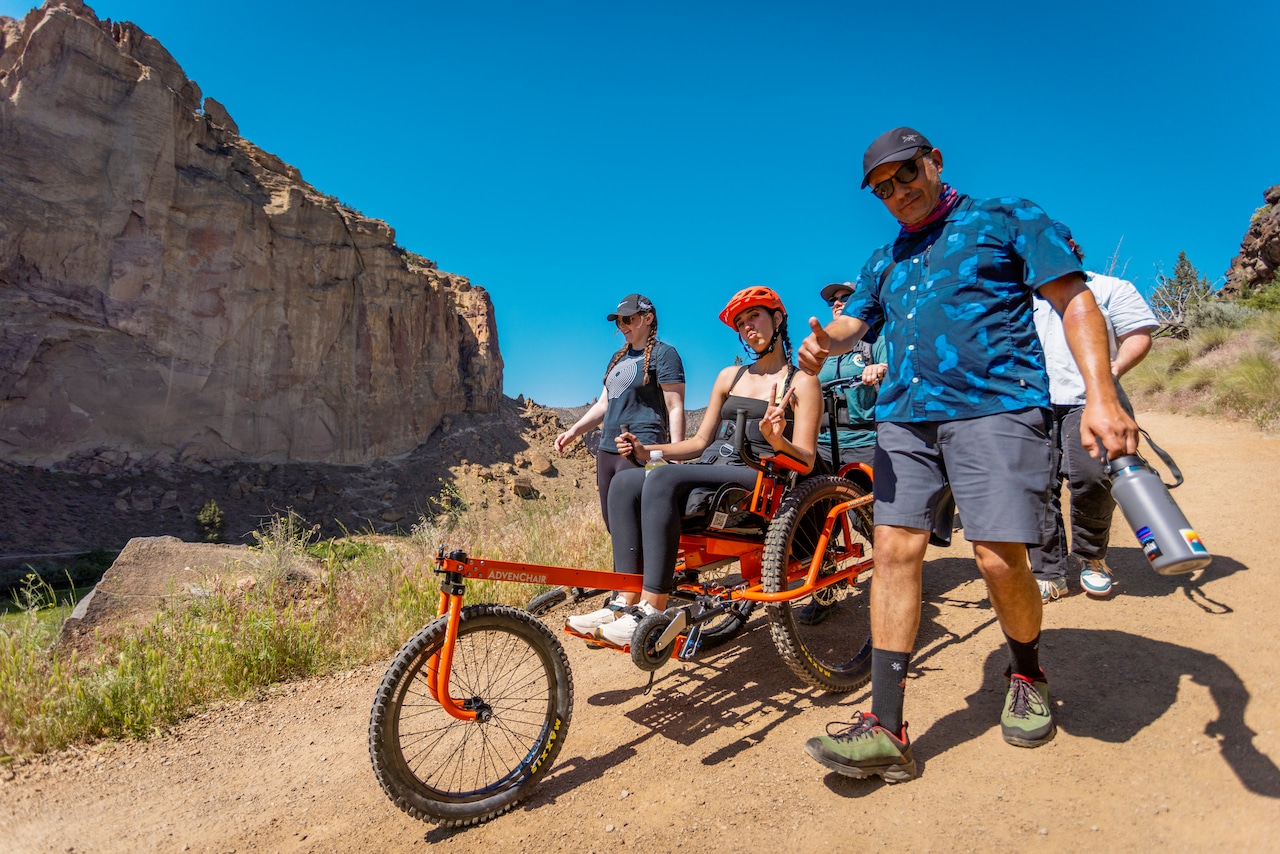
Through a partnership between Travel Oregon and Wheel the World, Oregon has been named the first state to be “accessibility verified,” a Wheel the World designation that recognizes the state as an accessible travel destination.
Wheel the World, a travel platform for people with disabilities, was founded in 2018 by a wheelchair user to identify and promote accessible places to explore.
“So not a travel agency, but more an Expedia for people with disabilities,” said Joy Burns, communication and partnership manager for the company. “We wanted to offer verified information on accessibility, details of hotels, attractions and also transportation options.”
The company vets destinations by sending specialized mappers to verify accessibility details of hotels and other locations. They collect over 200 specific data points. At hotels, for instance, those data points include bed height, bathroom features and doorway measurements.
“They visited in Oregon in 43 communities across the state,” said Allie Gardner, industry communications manager at Travel Oregon. “They have assessed now over 750 tourism businesses, so hotels, restaurants, other types of businesses.”
The partnership with Travel Oregon began incrementally. Initially, Wheel the World started working with the Oregon Coast tourism agency. Recognizing the statewide potential, Travel Oregon formally launched the partnership with Wheel the World in 2024 with a $400,000 investment.
The Oregon verification process lasted over two and a half years. Using the results, Travel Oregon and Wheel the World then created accessible vacation itineraries for seven Oregon regions: the Willamette Valley, central Oregon, Portland, Mount Hood and the Columbia River Gorge, southern Oregon, eastern Oregon and the Oregon coast.
Each itinerary includes detailed accessibility information for hotels, restaurants and activities in each region, giving would-be-travelers a step-by-step plan to visit Oregon cities such as Bend, Ashland and Crater Lake and Cannon Beach.
In addition to the verification initiative, Travel Oregon has supported accessibility improvements through its statewide grants program over the past two years, which funds projects that make travel experiences more inclusive.
“We have, over the past few years, given out more than $8 million in grants towards projects and programs that either promote, maintain or improve accessibility across the state,” Gardner said, of Travel Oregon.
Through one such grant funded by Experience Mt. Hood and the Gorge in partnership with Travel Oregon, Randy and Rebecca Kiyokawa, owners of Kiyokawa Family Orchards in Mount Hood, were able to install over 600 feet of Mobi-Mats, creating wheelchair-accessible pathways through the orchard.
Randy Kiyokawa said the mats benefit many of the orchard’s visitors.
“Not only people in wheelchairs, but people with baby strollers, it’s just improving the experience for everybody,” he said. “It’s almost like the yellow brick road. It shows people where to go and where we laid out the flow of traffic.”
The $27,000 project is the first in Oregon to feature Mobi-Mats in a u-pick farm setting, according to Experience Mt. Hood and the Gorge. Previously known for improving beach access for wheelchair users, the mats provide stable, nonslip pathways across soft or uneven ground and can be used in all weather conditions. Randy Kiyokawa expects the new Mobi-Mats will improve tourism in the Columbia Gorge.
“It’s going to be huge once word gets out that the gorge and Oregon are friendly for people that have accessibility issues,” he said.
He explained that the mats were placed to make navigation easier in key areas, including the parking lot, near the farm stand, throughout the u-pick blocks and around spaces used for entertainment and picnics. The Mobi-Mats will remain in place through the end of the u-pick season in late October, and Kiyokawa said he plans to expand the accessible pathways in future seasons.
According to Burns and Gardner, the accessibility improvements across the state have already yielded positive responses from travelers with disabilities.
“We invited travelers with disabilities to come experience these itineraries that we’re creating,” Gardner said. “They had really positive feedback. Some of them were doing activities that they never thought they would be able to do or be able to be part of.”
Both organizations say they plan to continue adding destinations and activities to their travel itineraries.
Faith and cultural connections
Esta panadería de Wood Village ofrece una amplia selección de pasteles mexicanos
Screening aims to ‘discover the possibility of what Portland could be’
How to celebrate Indigenous Peoples Day 2025 in Portland and beyond
An upcoming Jewish bakery is bringing the ‘babka renaissance’ to Portland
This Wood Village bakery offers a warehouse-sized selection of Mexican pastries